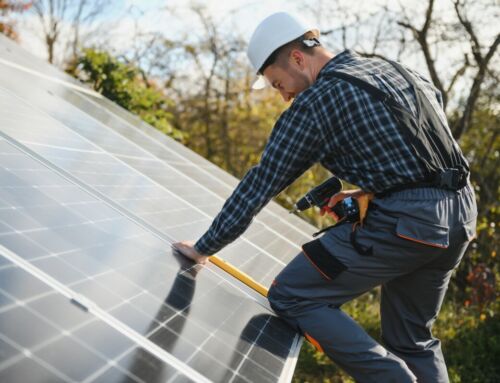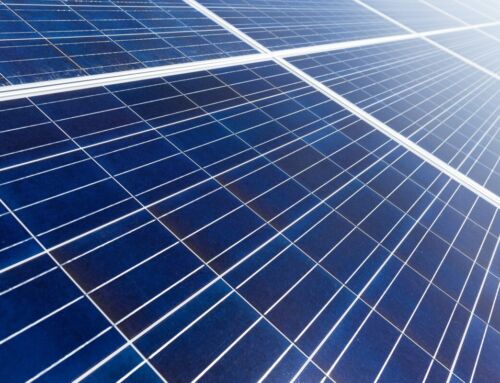Solar energy panel efficiency is crucial when considering the transition to solar power. This term refers to the ability of solar panels to convert sunlight into usable electricity. Higher the solar energy panel efficiency, the more electrical energy they are able to generate from the same amount of sunlight. This article will look into the intricacies of solar panel efficiency, the aspects that affect it, and why it is essential for homeowners and businesses considering solar energy.
What is Solar Energy Panel Efficiency?
Solar panel efficiency is used to quantify the sunlight that reaches the solar panel and is converted into usable electricity. It is expressed as a percentage. If solar panel efficiency is at 20%, it means that 20% of the sunlight hitting the panel is converted into electrical energy, while the remaining 80% is lost as heat or reflected light.
Factors Affecting Solar Panel Efficiency
- Material Quality: The type of material used in the manufacturing of solar panels significantly impacts their efficiency. Monocrystalline silicon panels, known for their high purity, generally offer the highest efficiency rates compared to polycrystalline and thin-film panels.
- Manufacturing Technology: Advances in manufacturing technology can enhance the efficiency of solar panels. Techniques such as passivated emitter rear contact (PERC) and bifacial panels, which capture sunlight on both sides, have pushed efficiency boundaries.
- Temperature: Solar panels are usually more efficient at lower temperatures. High temperatures will reduce the efficiency of solar cells, as they increase the panel’s internal resistance.
- Sunlight Intensity and Angle: The amount and angle of sunlight hitting the panel affect its efficiency. Optimal placement and tilt angle ensure maximum sunlight exposure, thereby increasing efficiency.
- Shade and Dirt: Even a small amount of shade from trees or buildings can significantly reduce the efficiency of solar panels. Similarly, dirt, dust, and debris on the panel surface can block sunlight and reduce output.
Enhancing Solar Energy Panel Efficiency
To maximize solar power generation, it is crucial to enhance the efficiency of solar panels. Here are some ways to achieve this:
- Regular Maintenance: Keeping solar panels clean and free of debris ensures maximum sunlight absorption. Regular cleaning and maintenance checks are essential.
- Optimal Placement: Installing panels at the correct angle and orientation to the sun can greatly improve efficiency. In the northern hemisphere, south-facing panels typically receive the most sunlight.
- Use of Tracking Systems: Solar tracking systems that adjust the panel’s angle throughout the day can help maintain optimal alignment with the sun, increasing solar energy panel efficiency.
- High-Efficiency Models: Investing in high-efficiency solar panels, such as monocrystalline or PERC panels, can result in higher energy output.
- Reducing Temperature Impact: Implementing cooling systems or choosing panels designed to perform properly in high temperatures can mitigate efficiency losses due to heat.
The Role of NewSolarQuotes.com in Promoting Solar Energy
At NewSolarQuotes.com, we are dedicated to helping customers get the best solar panels for their needs. Our platform connects users with top-rated solar panel providers, ensuring access to high-quality, efficient solar power solutions. Whether you are a property owner looking to reduce your bills or a business aiming to adopt sustainable practices, we provide tailored quotes and expert guidance to make your transition to solar energy seamless and cost-effective.
Our commitment to promoting solar power extends beyond just providing quotes. We offer educational resources and support to help you understand the aspects of solar energy and make informed decisions. By choosing NewSolarQuotes.com, you are partnering with a trusted ally in your journey toward energy independence and environmental stewardship.
Technological Advances in Solar Panel Efficiency
The solar industry is constantly evolving and growing, with new technologies related to solar energy emerging to enhance the efficiency of solar panels. Some notable advancements include:
- PERC Technology: Passivated Emitter and Rear Cell technology adds a layer to the solar cell’s rear, reducing electron recombination and allowing more light absorption, thus increasing efficiency.
- Bifacial Panels: These panels can capture sunlight from both sides, boosting overall energy production. They are particularly effective in areas with high albedo, where the ground reflects a significant amount of sunlight.
- Thin-Film Technology: Although generally less efficient than silicon-based panels, thin-film solar panels are light in weight and flexible, making them suitable for various applications where traditional panels might not be feasible.
- Multi-Junction Cells: These advanced cells use multiple layers of semiconductors, each capturing a different part of the solar spectrum. This technology can achieve efficiency rates significantly higher than conventional single-junction cells.
- Quantum Dots and Perovskites: These emerging materials have shown great promise in laboratory settings, with the potential to boost solar panel efficiency significantly in the future.
Real-World Applications and Benefits
Solar energy panel efficiency has a direct impact on solar power’s real-world applications and benefits. Higher-efficiency panels can produce more electricity in a given area, making them ideal for space-constrained installations such as rooftops in urban environments.
- Residential Solar Power: For homeowners, higher efficiency means more savings on electricity bills and a shorter payback period for the initial investment. Efficient solar panels can also increase the property value.
- Commercial Solar Installations: Businesses can benefit from high-efficiency panels by maximizing energy production from available roof space, leading to substantial reductions in operating costs and carbon footprint.
- Utility-Scale Solar Farms: Large-scale solar farms can generate more power and require less land with high-efficiency panels, making solar power a more viable option for meeting energy demands.
Environmental Impact of Solar Panel Efficiency
Solar energy is inherently environmentally friendly, but the efficiency of solar panels can further enhance their positive impact. Higher efficiency means more electricity from the same number of panels, reducing the need for additional land and resources.
- Reduced Carbon Footprint: Efficient solar panels significantly reduce greenhouse gas in the atmosphere by displacing fossil fuel-based electricity generation.
- Resource Conservation: By generating more power per panel, high-efficiency solar panels minimize the resources required for manufacturing and installation.
- Sustainable Energy Transition: Improved efficiency accelerates the adoption of solar power, helping societies transition to sustainable energy sources faster.
Solar Panel Efficiency and Economic Benefits
The economic benefits of investing in high-efficiency solar panels are significant. While high-efficiency solar panels may come with a higher upfront cost, the long-term savings and returns can outweigh the initial investment. By generating more electricity from similar amounts of sunlight, these panels can reduce the number of panels needed for a given energy output. This lowers installation costs and reduces the space required for panel installation, making solar power more accessible for properties with limited space.
Moreover, high-efficiency panels can enhance the return on investment (ROI) by shortening the payback period. As these panels produce more energy, they lead to greater savings on electricity bills. This is especially beneficial in regions with high electricity rates or for commercial installations where energy consumption is substantial. Additionally, the increased energy production can provide a buffer against future electricity price hikes, offering financial stability and predictability.
Choosing high-efficiency panels can be a strategic decision for homeowners and businesses looking to maximize their investment in solar power. At NewSolarQuotes.com, we help customers make informed choices by providing access to the best solar panels and offering expert advice on optimizing their solar energy systems for maximum economic benefit.
Conclusion
Solar energy panel efficiency is a critical factor in the adoption and success of solar power. Understanding the elements that influence solar energy panel efficiency and implementing strategies to enhance it can lead to substantial benefits for both individuals and the environment.
At NewSolarQuotes.com, we are committed to helping customers get the most out of their solar panels by providing access to high-quality, efficient solar solutions. By leveraging the latest technological advancements and offering expert guidance, we ensure that your transition to solar power is both efficient and cost-effective.





